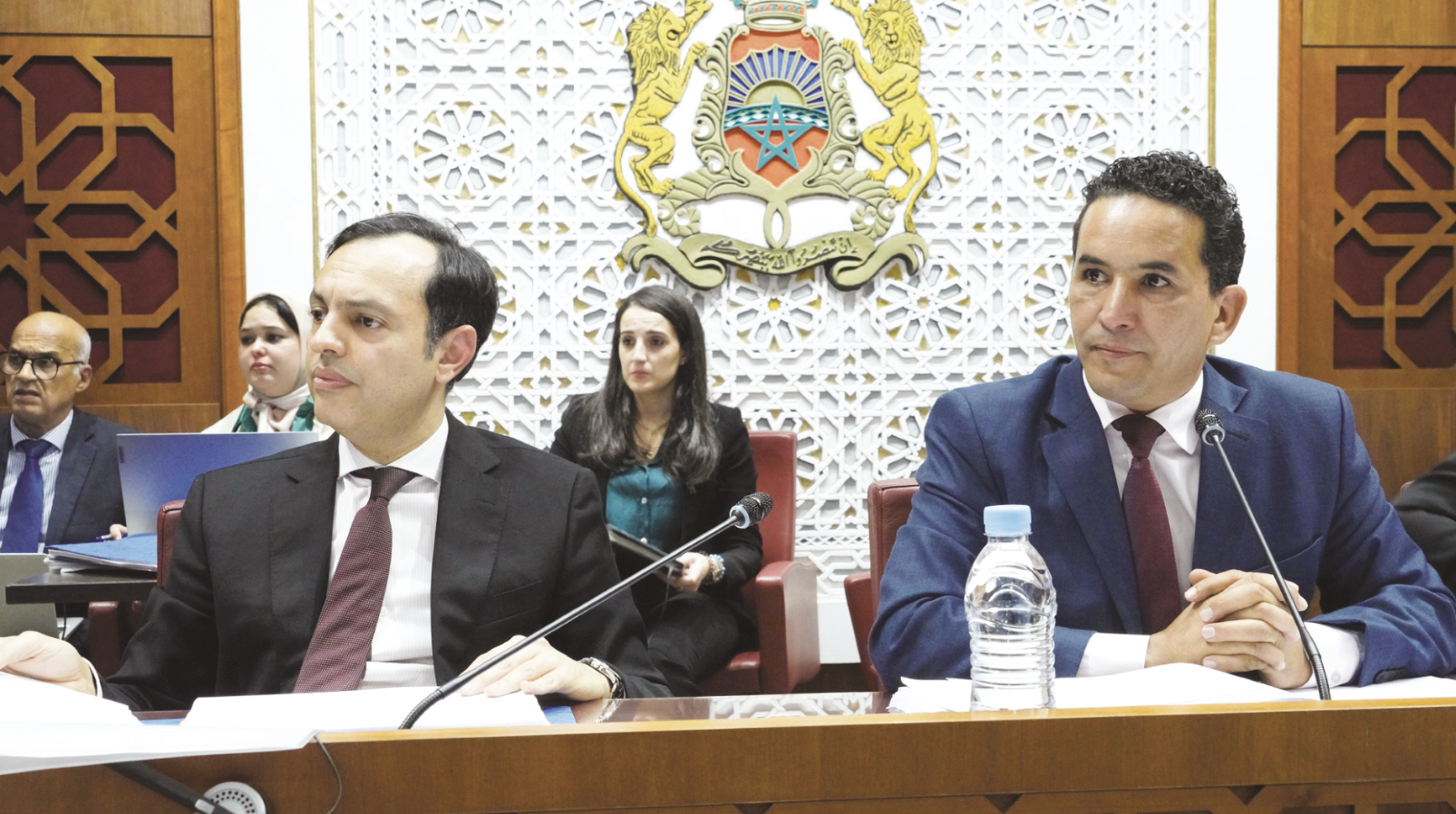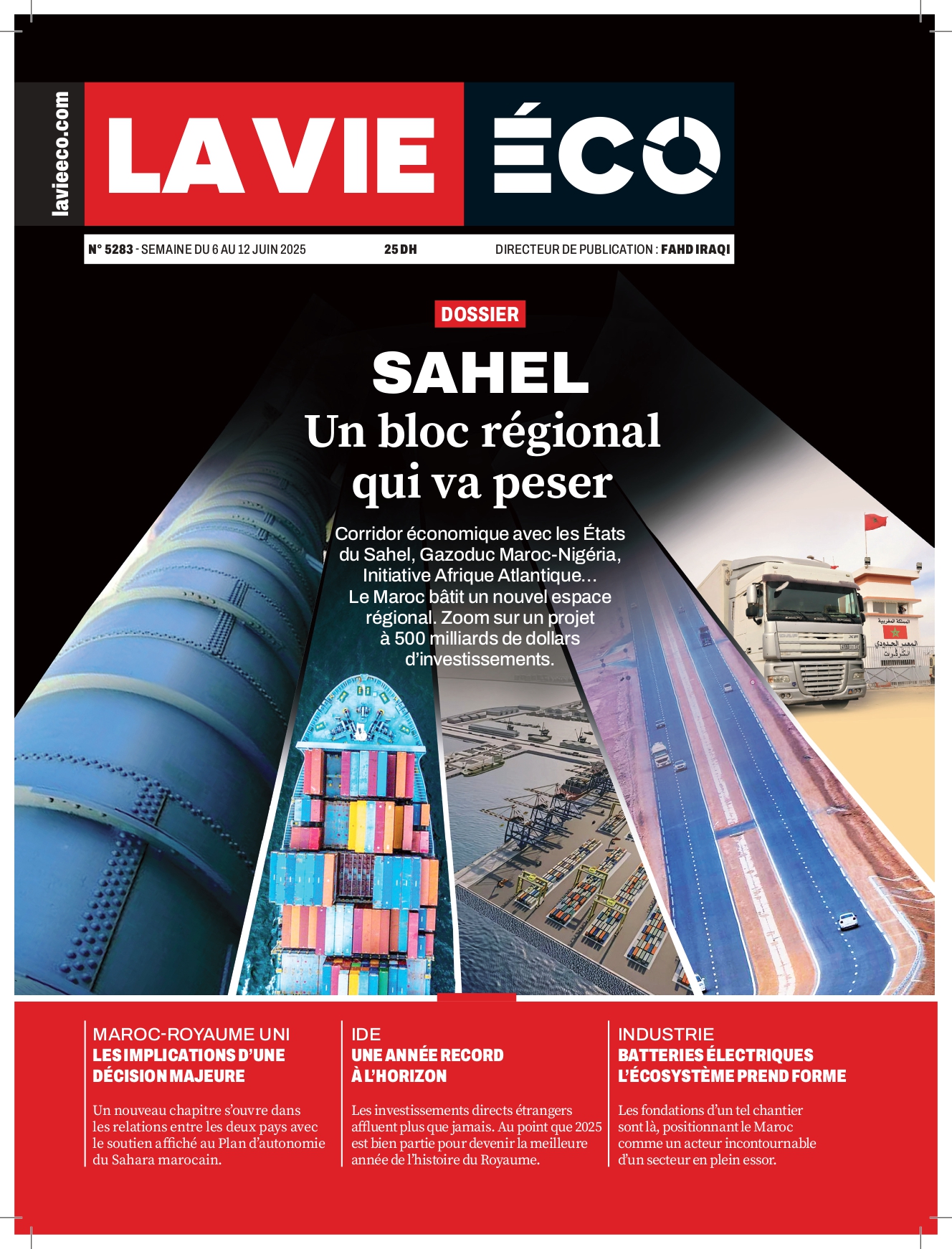Kingdom
Legal Framework for Strikes, a Turning Point
The kingdom moves up the global value chain. Investments pour in, thanks to the new charter. Job opportunities materialize. The business climate improves. This decisive step was necessary to consolidate social peace within the enterprise and inspire confidence in investors.

Beyond the symbolic significance of the bill, the first to be adopted after a wait of over 62 years, it is a text that seeks to strike a balance. A turning point in the social history of the Kingdom, since the promulgation of the Decree on Trade Union Freedoms in 1957.
This is particularly significant in the current context where Morocco is negotiating a new economic takeoff, relying on the industrial sector as it enters a new phase. As recently emphasized by the president of the EBRD, Odile Renaud-Basso, “Morocco has a strategically important position for the reorganization of value chains (…). Therefore, it is a country with the capacity to move up the value chain and become a manufacturing hub.” This is already evident in both the automotive and renewable energy sectors. The pace is accelerating since the adoption of the new Investment Charter.
However, it is widely acknowledged that a new charter that stimulates investment, along with a favorable regional and global environment, is not sufficient to instill confidence in our country among investors. As investment is tied to employment stability and dignity, which are not only governmental priorities but also national imperatives, fostering a healthy social climate and establishing a clear, secure contractual framework for investment are crucial
A law on strikes – in addition to institutionalizing social dialogue with its regional and local ramifications and soon reforming labor legislation – is the cornerstone of building this healthy social environment.
Hence, the government’s interest and determination to adopt this new legal framework are evident. Even if an enterprise manages to establish social peace conducive to the well-being of its employees and the growth of its business through its own means, it still depends on other factors and services provided by its partners and environment, such as transportation, telecommunications, energy, public services, and basic needs.
It is likely for this reason that, within the scope of the organic law project, the legislator has defined the services where work continuity is mandatory (see box).
Who can call for a strike
The principle of minimum service, established as a rule, is clearly defined, along with the preservation of production tools and continuous supply of essential products to the market. The text also upholds the principle of freedom of work and that of “wages in exchange for work.”
The deduction of strikers’ salaries, previously regulated by regulatory means, is now entrenched in legislation. The text has also brought order to an area that was previously characterized by total chaos.
In the past, almost anyone could declare a strike, but once the text comes into effect – six months after its publication in the Official Gazette, following approval from the Constitutional Court – this will no longer be the case.
In the meantime, entrepreneurs and citizens now have a concrete answer to a fundamental question: who can call for a strike and how? Article 3 of the draft law, adopted by the committee on December 3 with an overwhelming majority of 22 votes in favor and 7 against, clearly specifies that only legally established unions can call for a strike, regulate its course from start to finish, and conduct negotiations with the employer or administration, both in private enterprises and public institutions, including the administration.
In certain specified cases according to the draft law, in the absence of unions, employees can also initiate a strike within the company, provided that a signed strike call report by 35% of the total staff is prepared during a general assembly attended by 50% of employees.
A monitoring and supervision committee (composed of three to six members) for the strike will be formed on the same occasion. This principle applies to both companies and public institutions. It goes without saying that a strike cannot be declared and observed overnight; a minimum notice period of at least 7 days (three days in case of urgency) is required.
The text also regulates strikes initiated by professionals and self-employed workers, under the same conditions. In short, surprise strikes are out of the question.
Gone are the days of “tansikiyate” and other “committees” that react, based on decisions made through social media exchanges involving parties whose agendas often have nothing to do with the strikers’ demands.
It is worth noting that in the text, strikes are associated with specific demands, implicitly ruling out any form of strike with political undertones or other motives.
Openness, listening, and consensus
One of the key aspects of this text is that it establishes a list of “essential services” where activity cannot be disrupted. The text identifies over a dozen sectors and institutions where a minimum service level must be maintained. Also, phenomena bordering on banditry, which used to accompany strikes to a decreasing extent, are now excluded.
Picketing, occupation of premises, and blocking of exits within the company are all legally prohibited. Article 16 of this draft law also specifies the duties of the entity calling for a strike, which include supervising strikers before and during the movement, managing the exercise of this right, and taking necessary measures to prevent the destruction of property and equipment at the workplace.
The essence is to ensure health and safety at work, as well as the security and well-being of workers. The text also guarantees those workers who choose not to participate in the strike the right to freely access their workstations.
From the outset, the government’s concern has been “to establish a logical and legal balance, thus ensuring equitable protection of workers’ rights while considering the interests of employees and the country,” as highlighted by Minister Younes Sekkouri, a key figure who has significantly contributed to the completion of this project.
Within the union sphere, it is acknowledged that “this draft law aims not to restrict the right to strike but rather to organize it in accordance with the Constitution.” Nonetheless, it is widely agreed that the Executive has demonstrated courage, audacity, and notably a commendable listening capacity to bring this project out of the shadows and rewrite it almost entirely in consultation with social partners – all unions, whether with or without the status of being “most representative” – and employers.
This is just the first step that has been taken. It is possible that the content of the text will be enriched and improved as it progresses through the legislative process – first in the plenary session of the first Chamber, then in the second Chamber, in committees and plenary sessions, and potentially in a second reading in the Chamber of Representatives before reaching the constitutional judges. Nevertheless, the major part has been accomplished, and the psychological barrier has been overcome.
Guaranteed Minimum Service
The draft law outlines a series of sectors and organizations in which activity cannot come to a complete halt. It establishes mechanisms to ensure service provision in healthcare facilities, courts of all levels, the National Financial Information Authority, the Official Printing Office, the Meteorology Directorate, transportation services (rail, road, maritime, and air), telecommunications, audiovisual communication companies, pharmaceutical production and distribution firms, medical oxygen producers and distributors, health control services in ports and airports, veterinary services, water, electricity, and energy product production and distribution services, and liquid sanitation and waste collection services of all kinds.
In all these services and establishments, a minimum level of activity will be maintained to safeguard the lives and health of citizens. This minimum service will be regulated by a regulatory text.

